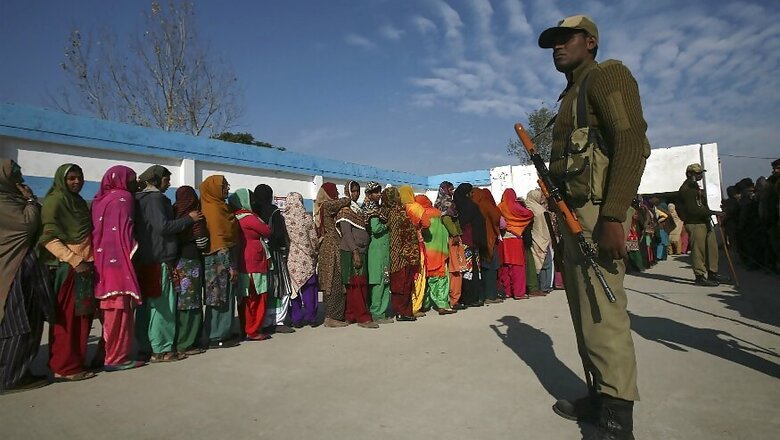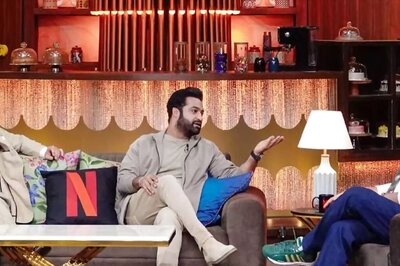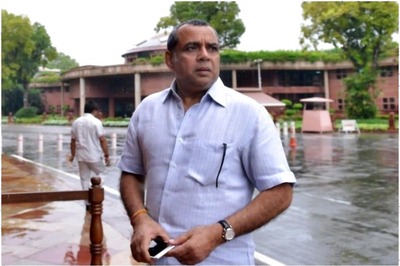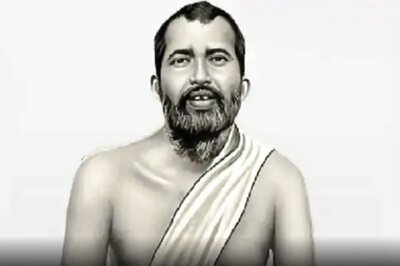
views
With the Article 370’s revocation, Jammu and Kashmir’s true integration into India was achieved, addressing a lacuna that had been allowed to exist for too long. However, what people often ignore in the midst of the noise around the issue is the transformative impact on democracy that has managed to touch the lives of people in a meaningful way, creating a rupture from the cynicism they often felt because of the schisms resulting from Article 370. For the first time, grassroots democracy was significantly strengthened by the Narendra Modi government thanks to the conduct of local body elections.
Elections to Panchayats, Blocks and Municipalities – A Reality
Prior to the amendment of Article 370, the Modi government had ensured that Panchayat Elections occurred successfully in the erstwhile state of Jammu and Kashmir in the November of 2018. That it took thirteen years to get this done is testament to how democracy was subverted, thanks to the monopoly of a few elite.
Ironically, municipal elections have taken place only 5 times in Jammu and Kashmir till now, one of them occurring under this government. Thanks to the fear free atmosphere ensured by the security forces, the Panchayat elections in Jammu and Kashmir, held in nine-phases between November 17 and December 17 on a non-party Basis witnessed an impressive 74% turnout in the 35,096 panch constituencies.
Post the amendment too, Jammu and Kashmir witnessed its first ever Block development polls in October of 2019, and witnessed an impressive voter turnout of 98.3%, in the process electing chairpersons of BDCs for 310 blocks in the state and 1,092 candidates in the fray. Srinagar in the Kashmir division recorded a 100 per cent turnout, and the poll percentage for the 10 districts in the Kashmir region was 93.65 per cent and 99.4 per cent for the 10 districts in the Jammu region.
These figures stand testament to the deepening of roots that democracy witnessed by the people in a meaningful sense, with the monopoly of the political elite of the Kashmir valley not mangling democratic principles for achieving their own ends in a long time. With the peaceful conduct of local elections ensure people basic needs in life are being met continuously, and thanks to the bifurcation and amendment coupled with pending delimitation these can become a regular feature, empowering the people of Jammu and Kashmir in a meaningful way.
Empowering Democratic Institutions, Enabling Local Governance
Democracy is not just about elections; it is also about sharing responsibility and empowering representatives appropriately. Both the union territory government and central government have been working overtime to extensively support and empower block development councils, panchayats and sarpanches to actually exercise their power and work for the welfare of people of Jammu and Kashmir.
More than ₹1,500 crores have been devolved to Panchayati Raj Institutions in the past one year alone, while implementation powers for important schemes like MGNREGA, PMAY, Mid-Day Meal Scheme, were finally given to the UT’s panchayats, an anomaly that had been allowed to fester for too long. Powers were also given for undertaking social Audit of Government schemes and issuance of NOC’s to mining licenses while enhancing the financial powers of local governments by ten times from ₹10,000 to ₹1 lakh for Panchayats and from ₹25,000 to ₹2.5 lakhs for Block Councils.
In the same vein, powers of Municipal Bodies to enter contracts have been enhanced upto ₹20 crore, which has fast tracked development process.
Panchayats have been granted powers to generate their own funds, allowing them to charge building permission fee, taxes on entertainment, advertisement, hoardings, various kinds of businesses and profession. This is important, as it helps the local governments raise revenue independently to conduct relevant development works as the need arises. Also, to give a boost to the morale of the people who have risked their lives by going against terrorist diktats, the government has instituted a monthly honorarium of ₹2,500 for sarpanchs and ₹1,000 for panchs. To further boost their morale, Prime Minister Modi personally met a section of newly elected Panchayat members in December of 2019 and heard all their views, directing officials to see how their concerns can be addressed suitably.
Such deepening of democracy is not limited to conventional measures as above; it also incorporates creative governance initiatives such as the unique participatory initiative Back to Village (B2V) wherein every gazetted officer spends one night and two days in an allotted Panchayat. This initiative has resulted in 20,000 development works being identified directly by the people with all panchayats covered. Such close involvement in a place where governments behaved in the much hated mai-baap attitude and has made the system responsive to people, a refreshing change from the days when governance was all about being networked to get one’s share of the spoils as a khairaat for being a loyalist to one or the other elite and his/her family.
The transformative effects of the Narendra Modi government’s real healing touch to Jammu and Kashmir are being witnessed as they become a new reality for the Union Territory.
With Jammu and Kashmir experiencing the true meaning of democracy and participatory hands-on governance, hope has finally rekindled in the hearts and minds of the ordinary citizens who have for long been deprived of their rights. Well begun is half done, and truly a good start has been initiated in this direction.




















Comments
0 comment